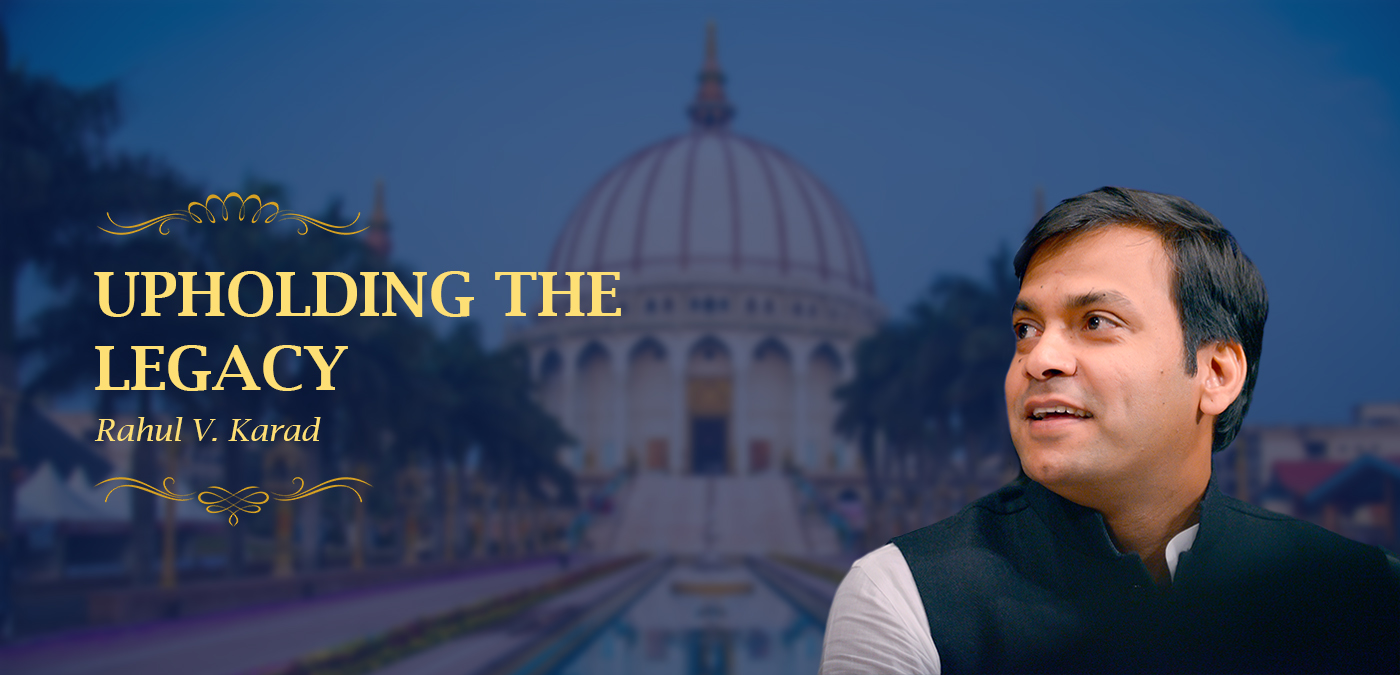
 Rahul V. Karad
Rahul V. Karad
Revered Prof. Dr.Vishwanath D. Karad has imbued his son, Rahul V. Karad with the same values ,vision and ethos that are part of his personality. Inspired by his father’s progressive and futuristic thoughts, his hard-work and unwavering commitment as an educator and striver of world peace, Rahul V. Karad, Executive President of MITWorld Peace University located in the city of Pune, known as the educational and cultural capital of India, has taken up the mission of propagating the message of global peace and harmony, and valuebased education for the youth. He has voiced his beliefs in many forums. “India has been a land of tolerance. A land of unity in diversity. Numerous religions have been practiced and people of all faiths have co-existed here for centuries in harmony. The tolerance and acceptance of each others’ faith has been a hallmark of Indian traditions. In the early vedic philosophy originating in India ,the message of the force of oneness of all humans has been the anchor for peace and harmony.
We see that despite such great strides of scientific and civilizational advancements ,in many parts of the modern world we see conflicts and destruction. The message of peace drawing from the saints ,philosophers and scientists and the rich traditions of India is greatly relevant for the world today. As enunciated by Swami Vivekananda,” Education is a manifestation of pure intelligence and of the perfection already in man”, bringing in the notion of education through the understanding of science and spirituality/religion for human welfare. So if we have to usher in a future of peace, love and harmony, we have to revamp our education system and methods by incorporating time-tested human values ,the fusion of science, spirituality and divinity, and institute a value-based universal education system. The World Peace Dome, World Peace Prayer Hall & Library, stands as a testimony to the mission of world peace through continuous education and humanitarian understanding. And amalgamation of science and spirituality.”

